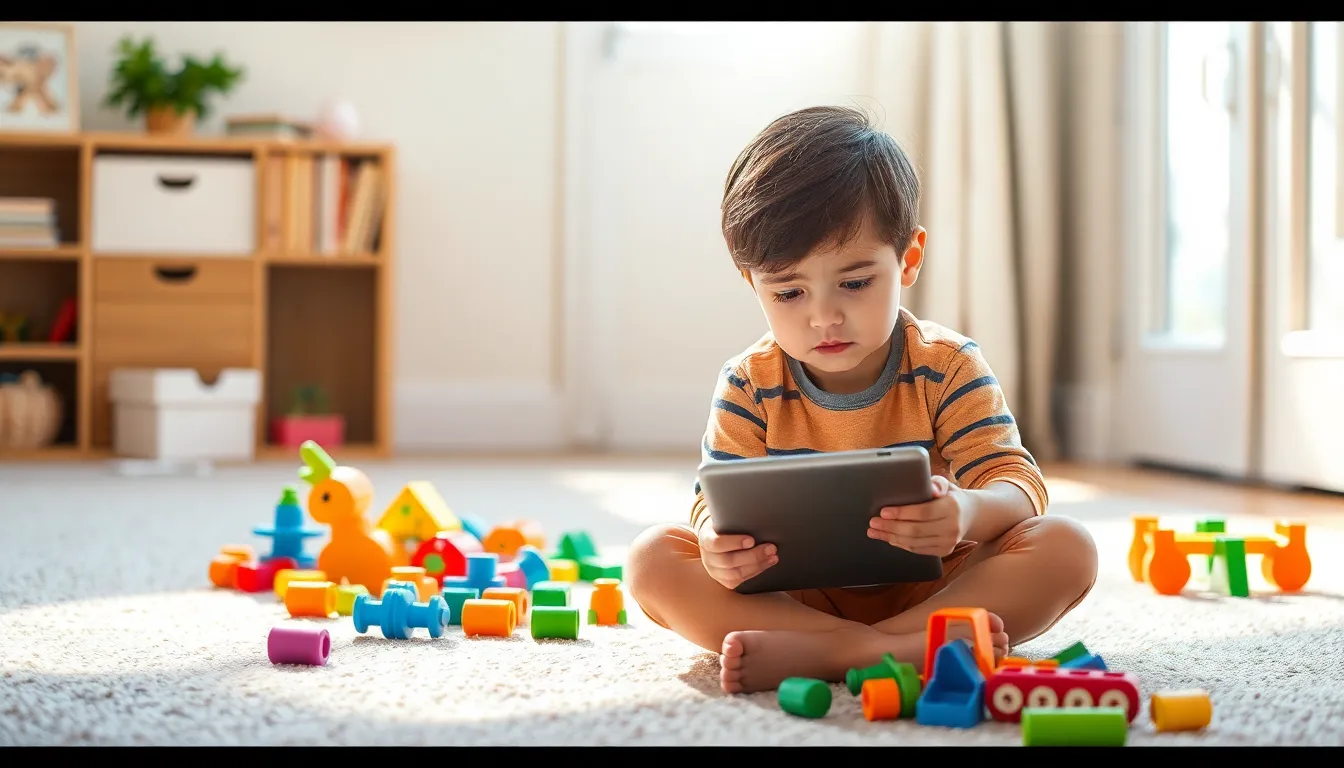Table of Contents
ToggleIn a world where scrolling through social media has become a competitive sport, screen time awareness has never been more crucial. It’s easy to lose track of hours spent glued to screens, whether it’s binge-watching the latest series or endlessly refreshing feeds. But what if those hours could be spent on something more fulfilling—like finally learning to juggle or mastering the art of making the perfect cup of coffee?
Understanding Screen Time Awareness
Screen time awareness emphasizes recognizing and evaluating how much time individuals spend on screens. This focus has grown crucial due to the impact of technology on daily routines.
Definition of Screen Time
Screen time refers to the duration spent using any device with a screen, including smartphones, computers, TVs, and tablets. It encompasses both recreational activities, like gaming or watching videos, and work-related tasks, such as attending virtual meetings. Experts recommend tracking daily usage to identify patterns and habits. According to the American Academy of Pediatrics, children aged 2 to 5 should limit screen time to one hour per day of high-quality programming. For older children, a consistent approach to screen use helps maintain a healthy balance.
Importance of Awareness
Awareness of screen time plays a vital role in managing one’s overall well-being. Excessive screen use can lead to adverse effects, such as sleep disturbances and reduced physical activity. Many professionals note that increased screen time correlates with heightened stress levels and anxiety. Gaining insight into screen habits enables individuals to prioritize face-to-face interactions and physical activities. Implementing strategies to limit screen exposure can enhance productivity and foster better social connections. Tracking time spent on screens serves as a foundation for building healthier routines.
Effects of Screen Time on Health

Excessive screen time significantly affects health outcomes. Understanding these effects plays a vital role in promoting overall well-being.
Physical Health Impacts
Extended screen use contributes to various physical health issues. Eye strain, often caused by prolonged exposure to screens, may lead to discomfort and blurred vision. Sedentary behavior associated with screen time connects to obesity and cardiovascular disease. Children, in particular, face risks related to posture and spinal alignment due to poor sitting habits. Experts recommend regular breaks to counteract these effects. Incorporating physical activity can mitigate health risks, promoting a balanced lifestyle.
Mental Health Impacts
Mental health problems often arise from excessive screen usage. Increased screen time correlates with heightened anxiety and depression rates. Social media platforms can distort self-image, leading to feelings of inadequacy or loneliness. Disruptions in sleep patterns also occur, which decrease overall mental wellness. Individuals should prioritize engaging in offline activities to combat these issues effectively. Establishing a healthy balance between online and offline interactions enhances emotional resilience.
Screen Time Guidelines
Screen time awareness involves understanding and managing the amount of time spent on devices. Following guidelines helps promote healthier habits for individuals of all ages.
Recommendations for Different Age Groups
Children aged 2 to 5 should limit screen time to one hour of high-quality programming each day. Teens aged 6 to 18 should aim for consistent routines that include no more than two hours of recreational screen usage. Adults benefit from being mindful of their own screen habits and maintaining a balance. Tracking daily usage can help everyone, especially parents, set appropriate boundaries for their children. Monitoring content quality ensures that young users engage with educational and enriching material, fostering positive developmental outcomes.
Balancing Screen Time with Other Activities
Prioritizing face-to-face interactions and physical activities is essential for holistic well-being. Scheduling outdoor play, reading sessions, or family game nights can help decrease excessive screen usage. Designating specific screen-free times each day encourages healthier routines. Engaging in hobbies like cooking, gardening, or exercising promotes physical fitness. Dedicating time to offline activities creates opportunities for emotional connections and reduces stress levels. Establishing these habits leads to improved social skills and overall happiness.
Strategies for Promoting Screen Time Awareness
Promoting screen time awareness requires strategic engagement from various stakeholders. Parents and caregivers play a crucial role in guiding screen habits.
Engaging Parents and Caregivers
Engagement starts with open conversations about screen time. Parents can share their screen usage experiences and discuss set limits. Providing resources on healthy screen habits sets clear expectations. Regularly scheduling family activities without screens encourages active participation. Reinforcing the idea that face-to-face connections enhance emotional bonds fosters a supportive environment. Encouraging caregivers to model healthy screen behavior influences children positively. In workshops, sharing strategies for balancing screen time with offline activities proves helpful.
Utilizing Technology and Apps
Technology can aid in monitoring screen time. Various apps empower users to track their screen usage effectively. Setting timers for specific activities helps reinforce time limits. Notifications from apps can serve as gentle reminders to take breaks. Educational tools within these apps promote awareness and healthy usage. Gamifying screen time limits can make the process enjoyable for children. Leveraging technology in a productive way contributes to a balanced lifestyle.
Awareness of screen time is essential for fostering healthier lifestyles. By understanding the impact of excessive screen use on physical and mental health, individuals can make informed choices about their daily habits. Encouraging open discussions about screen time and setting clear boundaries can empower families to prioritize meaningful interactions and activities.
Incorporating regular breaks and engaging in offline pursuits can significantly improve overall well-being. As society becomes increasingly digital, taking proactive steps to balance screen time with real-life experiences is vital. Embracing this awareness not only enhances personal health but also strengthens connections with others, paving the way for a more fulfilling life.







